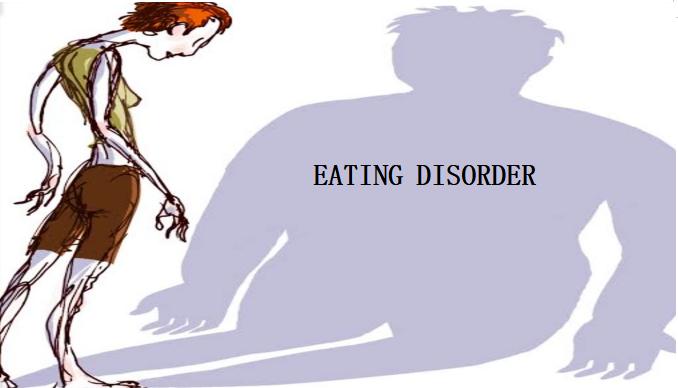Anorexia Nervosa: Symptoms, Causes, and Treatment
Author: Giselle Robel
Giselle Robel
Category: Health

What Is Anorexia Nervosa?
Anorexia nervosa often simply called anorexia is an eating disorder characterized by an abnormally low body weight. It is an intense fear of gaining weight and a misguided perception of weight. People with anorexia are obsessed about controlling their weight and shape, using extreme efforts that tend to significantly interfere with their lives.
To prevent themselves from gaining weight or to continue losing weight, people with anorexia usually severely restrict the amount of their food intake. They may control calorie consumption by force vomiting after eating or by misusing laxatives, diet aids, diuretics or enemas. They may also try to lose weight by exercising excessively. No matter how much weight is lost, the person continues to fear weight gain.
Anorexia isn’t really about food. It’s an extremely unhealthy and sometimes life-threatening way to try to cope with emotional problems. When you have anorexia, you often equate thinness with self-worth.
Anorexia, like other eating disorders, can take over your life and can be very difficult to overcome. But with treatment, you can gain a better sense of who you are, return to healthier eating habits and reverse some of anorexia’s serious complications.
Recognizing the Symptoms of Anorexia Nervosa
Although, those with anorexia nervosa lose weight and maintain their extremely low weight in different ways. And others put severe restrictions on their calorie intake, others exercise excessively. Some employ a binge and purge method similar to that used by those with bulimia. Others use laxatives, vomiting, or diuretics to rid themselves of calories. If you have anorexia nervosa, your symptoms may include the following:
- inability to maintain a normal weight
- fatigue
- insomnia
- skin that is yellow or blotchy and covered with soft, fine hairs
- hair thinning or falling out
- constipation
- more than three cycles without a period
- dry skin
- low blood pressure
You may also notice behaviors such as:
- excessive exercise
- pushing food around the plate instead of eating it, or cutting food into small pieces
- irritability
- withdrawal from social activities
- depressed mood
- hunger denial
- use of diuretics, laxatives, or diet pills
Causes
The exact causes of anorexia is still unknown. As with many other diseases, it’s most probably a combination of biological, psychological and environmental factors.
- Biological. Although it’s not yet clear which genes are involved, there may be genetic changes that make some people at higher risk of developing anorexia. However, some people may have a genetic tendency toward perfectionism, sensitivity and perseverance all traits associated with anorexia.
- Psychological. Some people with anorexia may have obsessive-compulsive personality traits that make it easier to stick to strict diets and forgo food despite being hungry. Also, they may have an extreme drive for perfectionism, which causes them to think they’re never thin enough. And they may have high levels of anxiety and engage in restrictive eating to reduce it.
- Environmental. Most likely, because in modern Western culture emphasizes thinness. Success and worth are often equated with being thin. Peer pressure may help fuel the desire to be thin, particularly among young girls.
Anorexia Nervosa Diagnose
Your primary care provider will perform a physical exam to check your blood pressure and heart rate. They will also do a psychological exam or refer you to a mental health professional who will ask about your eating habits and feelings. They will look for any criteria that show:
- restricting your food intake
- you have fear of gaining weight
- you have problems with body image
Your primary care provider may also order certain laboratory tests. In addition, blood tests may be ordered to check your electrolyte levels and liver and kidney function. In addition, your primary care provider may check your bone density and look for heart irregularities.
Your primary care provider may also order other laboratory tests to rule out other possible causes for weight loss, such as celiac disease and inflammatory bowel disease.
Treatment Available for Anorexia Nervosa
One of the biggest obstacles in the treatment of anorexia nervosa is admitting that you need help. Mostly, people with anorexia nervosa don't believe they have a problem. And that can make treatment difficult.
The main goal of treatment is to restore your body to a normal weight and establish normal eating habits. A dietitian will help you learn how to eat properly. It might also be recommended that your family take part in therapy with you. For many people, anorexia nervosa is a lifelong challenge.
Therapy
You and your family must work hard to overcome anorexia nervosa. Individual, family, and group therapies are often an integral part of treatment.
Individual Therapy
A form of therapy called cognitive behavioral therapy is often used to treat anorexia nervosa. CBT helps change unhealthy thoughts and behaviors. Its goal is to help you learn to cope with strong emotions and build healthy self- esteem.
Family Therapy
Get family members involved in keeping you on track with your healthy eating and lifestyle. Family therapy also helps resolve conflicts within the family. It can help create support for the family member learning to cope with anorexia nervosa.
Group Therapy
Group therapy allows people with anorexia nervosa to interact with others who have the same disorder. But it can sometimes lead to competition to be the thinnest. To avoid that, it's important that you attend group therapy that is led by a qualified medical professional.
Medication
While there is no medication at this time that is proven to treat anorexia nervosa, antidepressants may be prescribed to deal with the anxiety and depression common in those with anorexia. These may make you feel better. But antidepressants do not diminish the desire to lose weight.
Hospitalization
Overall, depending on the severity of your weight loss, your primary care provider may want to keep you in the hospital for a few days to treat the effects of your anorexia nervosa. You may be put on a feeding tube and intravenous fluids if your weight is too low or if you're dehydrated. If you continue to refuse to eat or exhibit psychiatric issues, your primary care provider may have you admitted into the hospital for intensive treatment.
Risk factors
Anorexia is more common in girls and women. However, boys and men have increasingly developed eating disorders, possibly related to growing social pressures.
Anorexia is also more common among teenagers. Still, people of any age can develop this eating disorder, though it’s rare in those over 40. Teens may be more at risk because of all the changes their bodies go through during puberty. They may also face increased peer pressure and be more sensitive to criticism or even casual comments about weight or body shape.
Certain factors increase the risk of anorexia, including:
- Genetics. Changes in specific genes may put certain people at higher risk of anorexia. Those with a first-degree relative a parent, sibling or child who had the disorder have a much higher risk of anorexia.
- Dieting and starvation. Dieting is a risk factor for developing an eating disorder. There is strong evidence that many of the symptoms of anorexia are actually symptoms of starvation. Starvation affects the brain and influences mood changes, rigidity in thinking, anxiety and reduction in appetite. Starvation and weight loss may change the way the brain works in vulnerable individuals, which may perpetuate restrictive eating behaviors and make it difficult to return to normal eating habits.
- Transitions. Whether it’s a new school, home or job; a relationship breakup; or the death or illness of a loved one, change can bring emotional stress and increase the risk of anorexia.
Complications
Anorexia can have numerous complications. At its most severe, it can be fatal. Death may occur suddenly even when someone is not severely underweight. This may result from abnormal heart rhythms (arrhythmias) or an imbalance of electrolytes minerals such as sodium, potassium and calcium that maintain the balance of fluids in your body.
Other complications of anorexia include:
- Anemia
- Heart problems, such as mitral valve prolapse, abnormal heart rhythms or heart failure
- Bone loss (osteoporosis), increasing the risk of fractures
- Loss of muscle
- In females, absence of a period
- In males, decreased testosterone
- Gastrointestinal problems, such as constipation, bloating or nausea
- Electrolyte abnormalities, such as low blood potassium, sodium and chloride
- Kidney problems
If a person with anorexia becomes severely malnourished, every organ in the body can be damaged, including the brain, heart and kidneys. This damage may not be fully reversible, even when the anorexia is under control.
In addition to the host of physical complications, people with anorexia also commonly have other mental health disorders as well. They may include:
- Depression, anxiety and other mood disorders
- Personality disorders
- Obsessive-compulsive disorders
- Alcohol and substance misuse
- Self-injury, suicidal thoughts or suicide attempts
Prevention
There’s no guaranteed way to prevent anorexia nervosa. Primary care such as pediatricians, family physicians and internists, may be in a good position to identify early indicators of anorexia. and to prevent the development of full- blown illness. For instance, they can ask questions about eating habits.
Family member or friend will also be a big help to determine this sickness. If you notice one of your family member or friend has a low self-esteem, severe dieting habits and dissatisfaction with appearance. Talking to him or her about these issues will be a big help. Although you may not be able to prevent an eating disorder from developing, you can talk about healthier behavior or treatment options.













